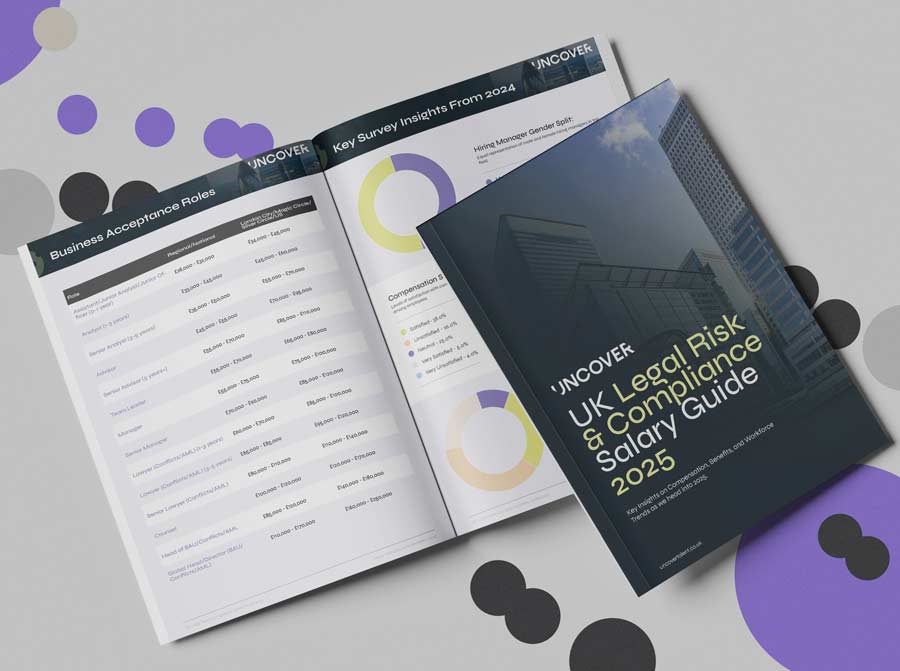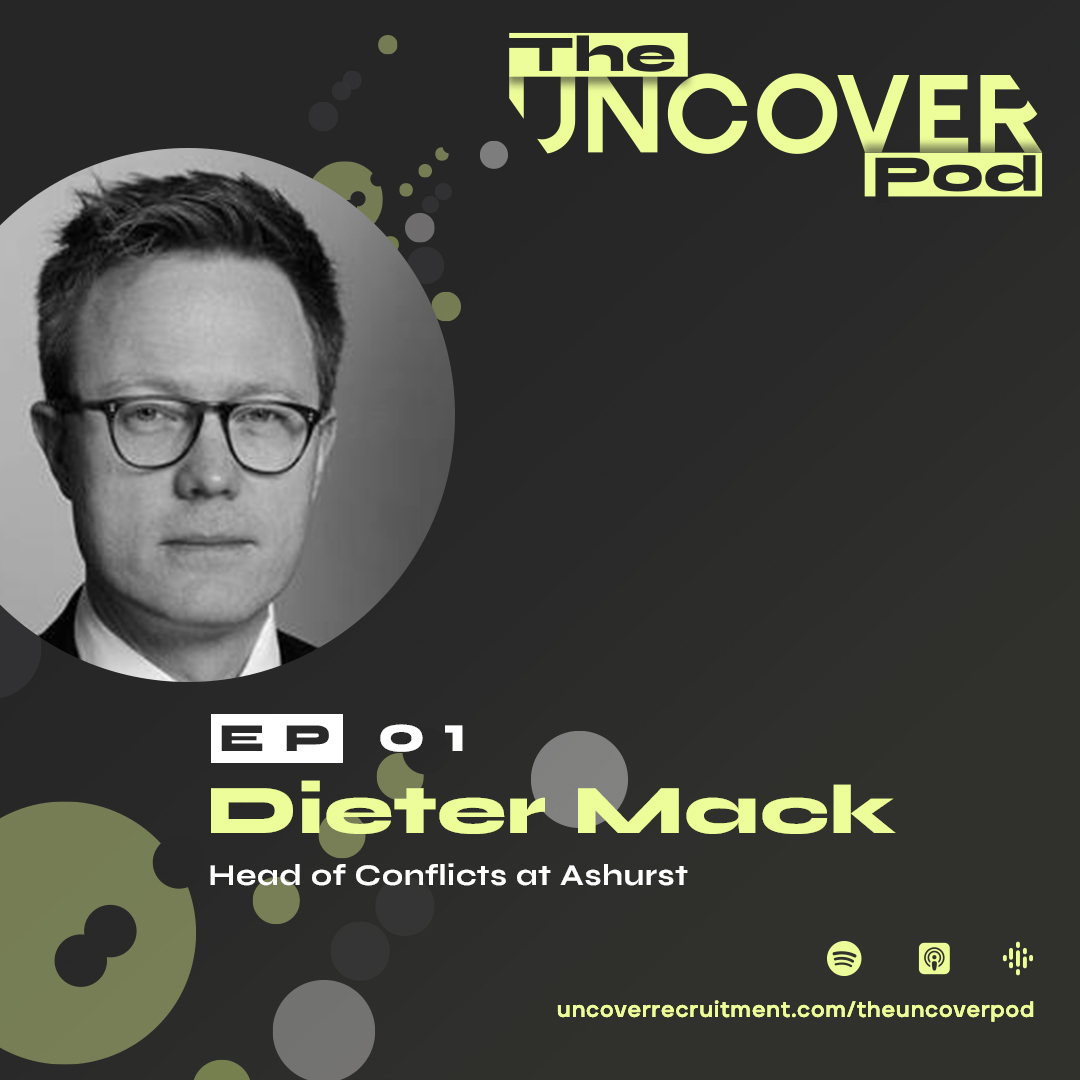Interviewing for a new position can be a nerve-wracking process. There are several ways that you can prepare for an interview, from researching the company to preparing insightful questions for the hiring panel. On Episode 3 of The UNCOVER Pod I was joined by Amasis Saba, the Head of Business Intake for Simmons & Simmons, to discuss the biggest mistakes that candidates make in interviews and what steps they can take to perform better. Read on to learn more about interviewing in the Legal Risk & Compliance industry.
What is the most important attribute that a candidate needs to demonstrate and why?
I’ll take enthusiasm and willingness to learn over nearly everything. They need to demonstrate recognition of what they do and don’t know, as well as a willingness to be honest about that. That’s something that I’ve seen make or break interviews. Candidates should be demonstrating a willingness to throw themselves into the role and ask ‘What am I going to learn today? How can I do better today?’
There aren’t many roles in compliance where you can do a straight nine to five type job with no thinking. To get the most out of the role, there has to be a willingness to push yourself and learn. There are some unrealistic expectations that when you have been somewhere for a year you automatically deserve a promotion. Leaders should be managing those expectations by asking ‘What does that look like? Do you just mean more money? Or do you mean a different role? And if so, how is that role different to what you’re doing at the moment?’ Promotions aren’t all about money, they’re about increasing your skills and knowledge.
What are the key mistakes you see candidates make during interviews?
Some things are universal, no matter what level the candidate is at. People often overestimate their abilities on their applications, so I want details. If you tell me you’ve been involved in something I’m going to want to know what you did. It comes across more obviously than people might expect when they overstate what they did. I’d take honesty in a response every time. That’s an absolutely critical mistake.
An important skill in this industry is the ability to communicate. We expect our writing and delivery to be succinct and to the point, but we often get candidates who try to impress us by talking for as long as possible. Don’t waffle – just get to the point, explain it and give a relevant example. That’s how you show confidence in your abilities and your skills.
Here are some other pointers:
- Being too general in your answer is also a mistake. Give a specific example. Tell me what you learned from it, why you did it and what was useful. Data is a brilliant example.
- Don’t give the answer you think we want to hear. Particularly when we’ve been interviewing for a while, we can tell when candidates do this.
- ‘I don’t know’ is always an acceptable answer. If we ask you technical questions, give us your best guess, but it’s okay to say you don’t know. Just be honest.
Should candidates be honest about what they’re looking for from a job?
Absolutely. When I ask about what you’re looking for, is it a title? Is it the money? Is it the opportunity to learn? For candidates who really want to learn, the progression might be slower on paper, because you’re not going to jump through four or five different levels in a short space of time, but the level of learning that you will get instead is massive. That’s an important point for many people – the expectation of quick progression might mean that you haven’t actually had the chance to build the thorough understanding that you would have if you’d stayed somewhere and absorbed information from senior people. Being honest in an interview helps us assess if we’re going to be able to meet your expectations, as well as the other way around.
What questions should candidates ask in interviews?
One of the questions I look forward to is ‘What does the training look like?’ Any firm whose training expectations finish at the end of the induction should be a bit of a worry for candidates. You need to ask ‘What does the ongoing, weekly, monthly or yearly training programme for the function look like, both in terms of professional skills and technical skills?’ This is a huge differentiation for the firm to offer people, and I think it’s a really important one.
To learn more about preparing for an interview, you can read this blog or listen to the full episode of The UNCOVER Pod here.




